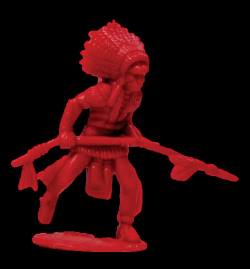Turning my novel, Looking for Redfeather, into a stage play has been an interesting challenge — and fun. I had to look at the story as a series of distinct scenes. Except for the challenge of conveying a character’s thoughts, writing Redfeather as a play was in some ways easier than writing it as a novel.
The scenic approach can be used in prose as well as theater, I’m learning. A scene in fiction might be described as that action which takes place in a single setting; a single place in time and space. A novel might be written as a series of scenes, each one critical to the bigger picture. The whole story is greater than the sum of its parts, yet an effective scene is complete in and of itself, with a beginning, middle and end.
When my historical novel-in-progress (Book Three of the Patricia MacPherson Nautical Adventures) got becalmed in a nameless sea, it helped me get underway again by imagining the story in terms of distinct scenes. Now as I write I’m asking myself these questions:
1.Where in the world are you, Linda? And when? And why? What is important about this particular setting?
2. What happens in this scene? Are the characters developed or the plot advanced?
3. What do I want the reader to discover or experience in this scene?
4. Whose scene is this? Protagonist or antagonist? Or is it a secondary character’s scene? Even if I’m writing from the omniscient POV, one character might want to steal this scene. Let her.
5. Can this scene be effectively combined with another scene — or might it be more effective divided into two or more scenes?
6. A well-developed scene includes description, narration, dialogue, interior dialogue, and action. Characters observe, talk, think, feel, act, and react. How can I enrich, fill out, or balance out this scene? Or does it need to be pared down closer to the bone? Does every word count?
7. Is this scene necessary to setting, character development or plot advancement? Or is it merely a preliminary sketch? Am I still in the free-writing stage, looking for the essence?
8. If this is a necessary scene, how can I punch it up? Bring it to life? Make it more vivid? More important to the story as a whole? Get out the toolbox: Livelier verbs, tighter descriptions, snappier dialogue, deeper interior thoughts and feelings? Does something more need to HAPPEN in this scene? What’s the worst that could happen right now? What bad choice might my character make? What terrible mistake? What if I allow that to Happen?
This scenic approach might not work for you, but it has gotten me back on course with my novel. Please share what works for you!
Watch Looking for Redfeather, the book trailer. Enjoy the scenery!
